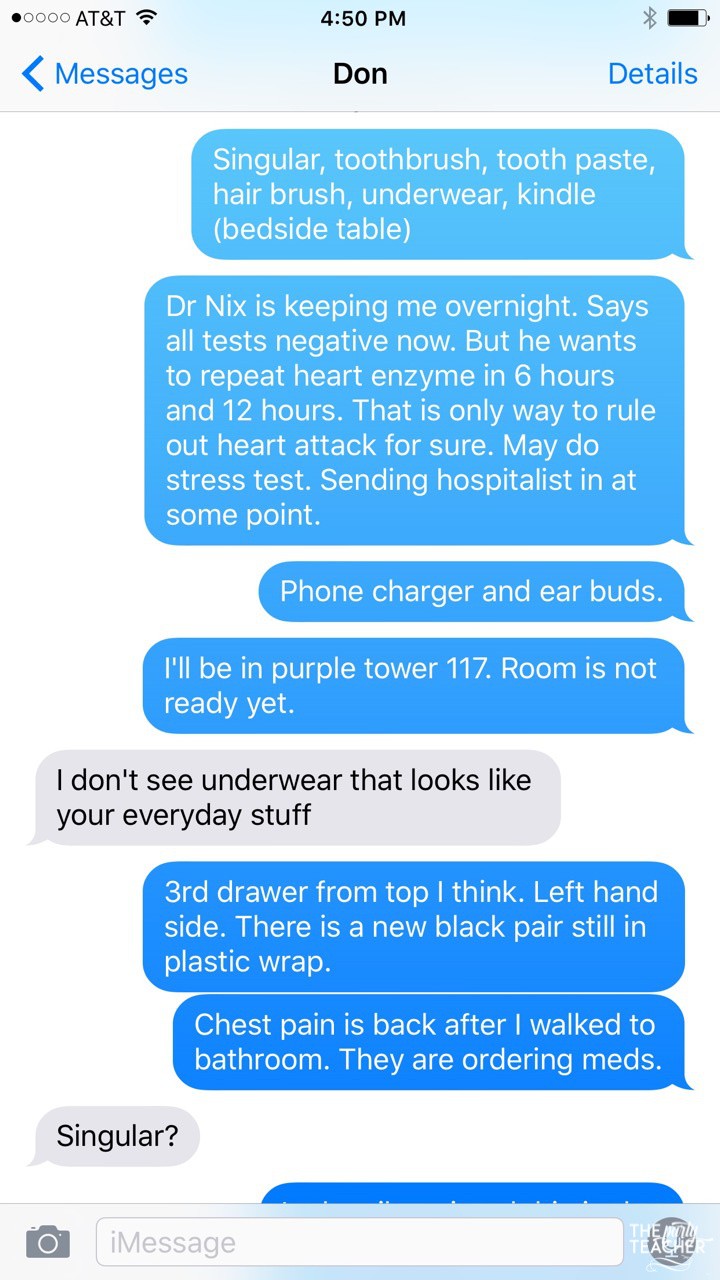The experience of witnessing a loved one suffer a heart attack is an event that profoundly alters one’s perspective on life, relationships, and personal purpose. In the context of the Bahá’í teachings, this incident serves as a poignant reminder of the transient nature of existence and the deeply interconnected fabric of human relationships. The teachings of Bahá’u’lláh, the founder of the Bahá’í Faith, encourage a holistic understanding of the human experience, inspiring individuals to cultivate qualities such as compassion, resilience, and unity in the face of adversity.
To begin with, the incident prompted a contemplation on the impermanence of the physical body. Bahá’í teachings emphasize that the material world is ephemeral—life unfolds in a series of moments, each of which carries the potential for enlightenment and growth. The fragility of human existence became strikingly real in witnessing the life-threatening episode; it illuminated the importance of cherishing each moment with loved ones. Every interaction is a unique opportunity to foster connections and make lasting memories. This recognition urges us to embrace gratitude for the life we share, as each heartbeat represents an invaluable thread in the intricate tapestry of our existence.
Furthermore, the episode revealed the profound strength of community. Bahá’í philosophy posits that unity is not merely a desirable state but a crucial necessity for the advancement of civilization. During the aftermath of the heart attack, a network of friends and family rallied together, providing support that transcended mere physical presence. This collective involvement enriched our understanding of teamwork and interdependence, illustrating how much stronger we are when we rely on one another. The Bahá’í teachings encourage individuals to engage actively with their communities, fostering an environment of interconnectedness and shared responsibility—principles that were vividly demonstrated during this challenging time.
Another key insight gleaned from this experience revolves around the concept of service. In times of crisis, the instinct to serve and support is amplified. It is through acts of kindness and selflessness that we align ourselves with the teachings of Bahá’u’lláh, who emphasized the importance of serving humanity. This notion extends beyond mere acts of physical assistance; it encompasses emotional and spiritual support as well. When witnessing a loved one in distress, the divine principle of compassion becomes paramount. Service, in this context, manifests itself through attentive listening, providing comfort, and being present amid fear and uncertainty. Such engagement fosters not only healing for the affected individual but also strengthens the bonds of love and understanding within the community.
The heart attack also served as a catalyst for introspection and personal transformation. It prompted a reassessment of priorities, urging a shift from a superficial focus on material achievements to a deeper contemplation of spiritual growth. Bahá’í literature teaches that true success lies not in worldly accomplishments but in the development of virtues that resonate with our higher selves. The incident called for a conscious effort to live a life imbued with purpose by engaging in activities that promote personal and collective elevation. This revelation advocated for seeking the essence of our existence, inspiring a journey of self-discovery that deepens our understanding of purpose and significance.
Moreover, this experience illuminated the urgency of maintaining a sense of balance in life. The heart attack acted as a stark reminder of the perils of neglecting one’s health and well-being, both physical and emotional. Bahá’í teachings advocate for a holistic approach to life—one that includes nurturing the body, mind, and spirit. Recognizing the importance of self-care is essential, and it serves as a foundation upon which to cultivate a fulfilling life. This requires creating space for recovery, reflection, and rejuvenation, an endeavor that must not be overlooked amid the chaos of daily responsibilities.
As the family navigated the recovery process, it became evident that resilience is a fundamental trait that can be cultivated through adversity. The Bahá’í teachings propose that challenges are instrumental in shaping character and fortitude. Embracing the trials of life equips individuals with the tools necessary for overcoming future obstacles. Each experience, including this heart attack, fosters resilience—enriching the spirit with strength and endurance. The ability to rebound from hardship is not merely a personal triumph; it serves as an inspiration for others who may be struggling, demonstrating that recovery and growth are always possible, even in the darkest of times.
In conclusion, the heart attack experienced by a loved one catalyzed a profound exploration of both personal and collective dimensions of life, as illuminated by the Bahá’í teachings. It underscored the delicate nature of existence while advocating for gratitude, community support, selfless service, and spiritual growth. Through embracing these principles, we find hope and resilience amidst adversity, cultivating a more meaningful and connected existence. This transformative journey beckons us all to recognize the interconnected tapestry of humanity, urging a shift in perspective that fosters curiosity, compassion, and a commitment to the greater good.
